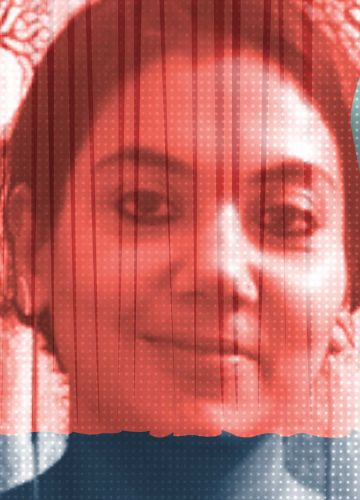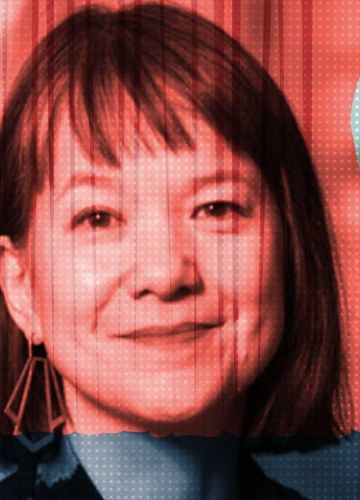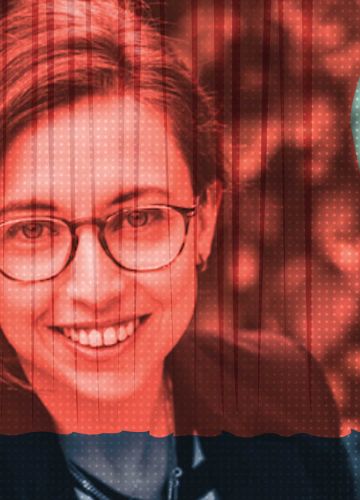Checking In on Fact-Checking in China

Fang Kecheng

Wei Xing
A Flood of False Information
Fang Kecheng: Mr. Wei, I know your experience in the media runs deep. Could first briefly talk about your previous experience and the origin of this project, China Fact Check?
Wei Xing: Sure. I’ve been working in media field since 2001, and I’ve experienced all sorts of changes in China’s media – from my earliest time in newspaper journalism (at the Oriental Morning Post), then transitioning to online media (The Paper). Somewhere in there I also worked for a while in the English-language media (Sixth Tone). After that I worked in the area of short video media (Pear Video). All told, I’ve been working in the media for 20 years.
It was last year that I started working on a fact-checking project called “China Fact Check.” The idea for the project started in March or April of 2020. At that time the epidemic in China was relatively under control, but the virus had already started spreading to the rest of the world. Along with this came the spread of a lot of false information.
It would have been around August of 2020, almost exactly one year ago now, that we started doing this project more formally. We have published about 200 fact-check pieces this year. Our pattern of work is sort of unique because we don’t have a real solid entity. Instead, we rely on voluntary networked collaboration, with a group of volunteer fact-checkers operating the whole project.
Currently we have a WeChat public account. Our content is also distributed through a number of other Chinese social media platforms. At the same time, we have a website that for the moment serves primarily as a means of aggregating materials.
We also try to organize activities to raise media literacy. For example, we have worked with a middle school in Shanghai, because we believe media literacy can be developed gradually from the teenage years. So we’ve also tried more diverse approaches.

Fang Kecheng: I see. Well, we can get into the details of the verification process in a bit. But you mentioned just now that this idea started in March or April of 2020. I would guess, though, that your awareness of the importance of fact-checking came much earlier than that?
Wei Xing: Yes. It was during the US presidential election in 2016 that the concept of fact-checking came into the spotlight and became more prevalent. Since that time, fact-checking departments at news media have sprung up as well as independent third-party fact-checking services. Everyone has suddenly realized that the spread of mis/disinformation has reached alarming levels.
Actually, it’s my personal view that not only is the phenomenon [of mis/disinformation] not improving, but in fact is likely to grow worse – and the actors involved are likely to become more and more diverse. As concerns about the pandemic, about vaccines and about international affairs persist, the production and distribution of disinformation remains very active.
Actually, it’s my personal view that not only is the phenomenon [of mis/disinformation] not improving, but in fact is likely to grow worse – and the actors involved are likely to become more and more diverse.
Fang Kecheng: Yes, I’m very much in agreement on this. But if you were aware of the need for fact-checking five years ago, why was it that you started work in this area only last year?
Wei Xing: Mainly it was because of the shift in mindset that happened in these intervening years.
Five years ago, I felt – and I’m guessing you probably feel this way too – that the most important thing about being a good journalist or editor was to do better, more exclusive interviews, and to provide the most in-depth analysis. I thought that by doing that I could make people understand the world better. I think that’s the goal that people working in the media share.
Over the past few years, though, a real problem has emerged. You notice as you’re going about your business in journalism upholding these ideas that the people around you, and even some of the people who are really key, like your friends, your classmates and your family members . . . . You find that the things they are reading are really different from the stuff you’re trying to do. Maybe in the past you felt a lot of pride in a really great exclusive interview you did, and you expected a lot of people were going to read it. But you realize now that people really don’t care that much. Or maybe they don’t even see it at all, or aren’t willing to read it.
So, you have this odd contrast emerging – that you’re busy building this tall building level by level, when actually the foundation has already collapsed, and people aren’t reading what you expect them to read. I would be talking to my colleagues and bosses on the one hand about the amazing stories and great coverage we were doing, while on the other hand many people just didn’t care at all about these things. Instead, they are reading things you might not even have imagined before. Not just things with viewpoints that you couldn’t have imagined, but more importantly things that are entirely untrue.
I’m not suggesting this phenomenon only emerged in the past year. But my personal feeling is that the problem has grown far more serious since the pandemic began. So, during that time I wondered if there wasn’t something we could do about it.
Fang Kecheng: I understand the feeling you’re describing. Journalists are busy making high-quality content but failing to reach sufficient audiences. This owes partly to the logic of social media communication, where high quality content may not be recommended by algorithms to the people who should see it. But it also has to do with this mindset people have, that they only want to see the content they want, content they think is accurate. Their horizons have narrowed.
Wei Xing: I think you can understand it that way. In fact, these two factors you mention are intertwined. And the second factor, I think, has been more prevalent since the pandemic. Because we face a very unique environment, in which for all sorts of complicated reasons – domestic politics, regional politics, ideology and so on – a whole host of problems aren’t limited anymore to just China, but are shared across the world. And on social media people’s views are more polarized, more split. The pandemic has changed so many things in the world, and the production and consumption of mis/disinformation has increased geometrically compared to years past.
Fang Kecheng: Yes. This is why it’s become so much more necessary to do fact checking.
International News: The Hardest Hit By Chinese Disinformation
Fang Kecheng: Could you give us an overview of your working model at China Fact Check?
Wei Xing: As mentioned earlier, China Fact Check is a collaborative network based on the principle of voluntary work. Mis/disinformation is so widespread that it’s really difficult to deal with using traditional methods – for example, by setting up an editorial department as you might do at traditional media. Your capacity is limited, not just in terms of energy, but in terms of your ability to find and identify suspicious information (for us to verify). So, for example, we might have five people on our team, but the capacity of these people to read information is always going to be limited, and we may read from similar viewpoints so that the content we come into contact with is actually similar. This may actually mean we are isolated from certain arenas of mis/disinformation. But if we are an open system, and each person can approach the work from their unique standpoint, then they can be exposed to a greater diversity of information.
There is another very practical reason, owing to the fact that we are operating in mainland China, and are engaged in fact checking. To be frank, this field remains a rather sensitive one. And this means, first of all, that we have no way of formally registering. Regardless of whether it’s as a company or as a non-profit organization, registration is something that’s very difficult and that entails various risks. Secondly, our project isn’t likely to have very strong prospects in terms of profitability. When all is said and done, we’re definitely an organization providing a public service. Moreover, we don’t want to invite commercial intervention, which might give people the impression you’ve lost your public service orientation.
For all of these reasons, we believe it’s better, at least for the time being, for everyone to maintain a relatively flexible and resilient (but still not overly loose) collaborative approach. This is probably the most optimal approach for now.
At present, we are the only fact-checking project in mainland China that can claim independence. When I say “independent,” I mean only that we are not affiliated with any media, government department, university, company or internet platform. But if we were to really solely on an open internet-based model, our productivity would be limited. So, we have adopted a hybrid model. We also try our best to maintain some cooperation with university journalism schools. This is because fact checking is actually a skill that should be included as a module in formal journalism studies. In the past, such training was included at journalism schools in mainland China, but there was not sufficient practical training involved. We’re really grateful to have the support of teachers who can involve students in exploring a wide range of fact-checking practices.
Fang Kecheng: So students can earn credit from such training programs?
Wei Xing: It would be nice of course if they could earn credit. But through this process they can at least take away something valuable. At the same time, [such cooperation] means our project gains valuable human resources and valuable work. This is the basic model we use to operate.
Fang Kecheng: How do you choose what to verify, and do you have a clear internal process?
Wei Xing: In terms of the sourcing of topics, things are very diverse at the moment.
First of all, there are the trending hot topics. From the standpoint of communication theory, it is better that we fact-check for popular events versus those that are relatively less discussed. Recently, for example, [hot topics included] the Taliban and events in Afghanistan. Earlier in the summer, the Olympic Games, and before that the issue of vaccinations and the pandemic. Back in May, the Israel-Palestine crisis was a hot topic, and so on. Whenever something happens, especially when there are hot topics of greater concern to China, we try to identify and sort out mis/disinformation appearing around these events, and we also pay attention to relevant top search threads on Weibo and related rankings. These are top priorities for selection.
Next, there are our volunteers, who will search for possible topics through their own channels.
Finally, because our project is now almost a year old, our influence has grown to some extent, at least relative to where we began. We are pleased to find that more and more readers leave messages on our WeChat public account to ask us whether certain information is true or not. On the one hand, this provides us with some sense that our work is getting recognition. On the other hand, it can clue us in to various different topics. We may not be able to turn all such inquiries into fact-checking articles, but they often provide us with story ideas. So far, we’ve had a relatively diverse selection of sources for topics.
So that means that from what we’ve seen so far, we’ve still got a relatively diverse selection of sources.
Fang Kecheng: With so many topics to choose from, how do you decide which topics to focus on?
Wei Xing: First of all, the most important thing naturally is to determine whether an issue is something that people really care about. In other words, whether it is a matter of public interest (公众利益). Issues concerning vaccines and the pandemic, for example, or other hot topics. In August, to provide another example, there was a lot of discussion in Chinese of the Taliban. This is one of the most important considerations.
The next thing we consider is verifiability. For some content, before we actually decide whether to do fact-checking, we will definitely start with some basic research. If after doing basic research we find that something is true, then we generally won’t pursue it, because there isn’t a lot of significance to verifying something that’s true. But if we find that something is false, or that it’s partly false, then we’ll consider going for it.
There is also of course the issue of risk, also a very important factor to consider. We might judge that something is an issue of great concern to everyone, and we might determine that it is false, but if we see strong risk [in writing about it] then we unfortunately we have to drop it.
Fang Kecheng: How do you determine whether there is risk involved?
Wei Xing: My years of experience in the media field give me a lot of insight into where the red lines potentially are.
Fang Kecheng: Are you the one who makes the final judgement in this process, on whether or not a topic can be done or not?
Wei Xing: Most of these decisions fall to me. We also have a quality review committee (质量审定委员会), not too large, that includes people with media experience. Their chief role is to provide training for newcomers. But they are also involved in the fact-checking process. After fact-checkers finish the first draft of an article it is sent to senior editors on the committee, depending on who is available, and they edit verify it. The sources cited in the initial draft are double-checked by colleagues on the committee, who will confirm the reliability of the fact-checking process and also edit the text to ensure it meets our standards for publication. They may also make determinations about risk. I’m the final gatekeeper, of course. In fact, in this respect, the way we operate is not unlike the old classic media model. We certainly can’t afford to have one of our fact-checks prove false. That would have fatal consequences.
My years of experience in the media field give me a lot of insight into where the red lines potentially are.
The fact-checking process has to go through many hands. It can’t be done by just one person. For a fact-checking operation, credibility is probably the most important thing.
Fang Kecheng: Have any of your articles been deleted before?
Wei Xing: No. There were only a few times when our articles were collateral damage. I mean that content we fact-checked and demonstrated to be false resulted in the deletion of related mis/disinformation from the [WeChat] platform, and because the deletion mechanism is automated our fact-checking articles were deleted along with the original articles. But our articles were eventually restored after we communicated with the platform.
Fang Kecheng: That’s amazing, and it shows how the strategies you are using are having a real effect.
Wei Xing: I’m sorry to say, though, that this means we self-censor again and again [to avoid treading in these sensitive areas]. When it comes to both topic selection and to the wording we use in writing about certain topics, we tend to be very careful.
Fang Kecheng: I’m still curious about this question of topic selection. You just mentioned a few criteria, and I wonder whether there are certain topics you might tackle, like for example health and wellness. Tencent’s “fact.qq.com” (较真) does a lot of stories like this, and then there are platforms like Guokr (果壳) and DXY.cn (丁香园) that will also cover this sort of content on their fact-checking columns. But this seems like a content area you’re not really pursuing. Another area is entertainment gossip. If, for example, netizens asked you to verify certain news about [celebrities like] Kris Wu (吴亦凡) or [teen influencer] Du Meizhu (都美竹), would you select such topics?
Wei Xing: That’s a really good question. Actually, we are positioning “China Fact Check” right now as a service for fact checking international news. In other words, we fact check only international topics that appear on media and social networks in simplified Chinese. So we don’t cover domestic content on areas such as health, wellness, entertainment, sports and so on. There are several reasons for this.
The primary issue is risk. As everyone knows, in a regulatory environment such as we have right now, it’s best for us to do our best to avoid touching domestic topics. Next is the question of resources. This is about differing degrees of openness about information in different places. For news overseas, you can go through open channels, such as the internet, to obtain reliable materials to an extent you just can’t for domestic news. Of course, progress is still being made here at home.
The third point is a really interesting one. In the process of fact checking, we’ve often found that producers and disseminators of misinformation actually share our concerns. Just imagine, if I produce mis/disinformation. Am I at greater risk if I concoct some news story about Beijing or Henan, or if I concoct a story about the US or Europe? I think the answer to this question goes without saying. And so you’ll find that in fact, on the simplified Chinese internet – aside from information dealing with wellness – disinformation about overseas matters far surpasses disinformation about domestic affairs. This means that on the question of risk, they [the producers of disinformation] share an understanding with us. They know that they can concoct something about the US, or about other countries, and it is both safe and likely to get more views. So why not, right?
So, to return to your question, we plan for the time being to position ourselves for international news fact-checking. But it’s not like we are absolutely not doing sports and entertainment as you said. Take the Tokyo Olympics, for example. We actually did a bunch of fact checking on information about the Olympics. On the surface, it looks like this is all sports-related. But as I am sure you noticed as well, sports topics during the Olympics have not been purely about sports.
It’s true our project has seldom dealt with entertainment content. There was an interesting example of this some time ago. A number of readers left us comments requesting that we fact-check a piece of information, and it was not purely entertainment related. [Actor] Satomi Ishihara was a torchbearer at the Tokyo Olympics, and on August 6 she did an interview with Japanese media, which happened to also be the anniversary of the dropping of an atomic bomb on the city of Hiroshima. In China, there were people on the internet saying that she had defended Japan’s defeat, that she was good friends with people on Japan’s far right and so on. We received a lot of messages asking whether we could fact-check these claims.
Fang Kecheng: So did you do fact checking on this topic?
Wei Xing: Unfortunately, we didn’t do it. We were very focused at the time on Afghanistan. It was difficult to devote energy to multiple threads. So, we didn’t offer fact checking publicly. But we did do simple fact checking on the basis of people’s messages. We didn’t do something in a fixed format like that for our published articles. But I did to some basic research, which I offered to them with all of the sources in one-to-one responses.
Coming Up Empty-Handed
Fang Kecheng: What is the process like once you’ve decided on a topic?
Once we settle on a topic, we ask among our volunteers to see who is available and who might have expertise in this particular area. For example, if the topic we’re fact checking involves a particular language, we might give preference to students who know that language. For the Tokyo Olympics, for example, we might seek out students or colleagues who can speak Japanese. For Afghanistan, if we were able to find someone who knew Pashto or Dari, that would help a great deal.
Eventually, we identify a volunteer who does the first step in the fact-checking process. They will go and do the research. If they encounter problems in the process, we can discuss these together. If they feel they’ve already found quite solid evidence, they’ll then complete the whole process according to our standards. It will then go back through the gate-keeping process I mentioned earlier.
The fact-checking standards we follow are largely informed by the principles developed by Poynter’s International Fact-Checking Network (IFCN). First and foremost, it is facts that matter, not opinions. We don’t rely on media reports if we can find the original sources. We try to follow the criteria they have outlined for the fact-checking process, including the identification of various sources and their links, and so on.
First and foremost, it is facts that matter, not opinions. We don’t rely on media reports if we can find the original sources.
We have also repeatedly stressed that in our fact-checking process, as well as in our final product, we are not permitted to reveal our own positions and opinions. We think this is very important. There are two reasons for this, in fact. The first is that everyone has feelings and makes their own value judgements – but if these are involved in fact-checking then this goes against the original intention of the process itself. Second, this is also a matter of survival for us. Because, as I mentioned a moment ago, people rip everything to shreds these days. And if you accidentally say something wrong, you might be reported by netizens (被网民举报). It may seem sometimes that we are cold and take no position whatsoever. But in fact, this may be one of the most important reasons we have survived up to now.
Fang Kecheng: I imagine that you must actually use a lot of different tools as you produce your content, including reverse image searches, or tools for analysing the source of videos, or possibly even some databases. Do you have an internal resource list, or an internal training manual of some kind?
Wei Xing: Yes, we do have a list of tools for common use. For example, when it comes to retrieving information, how to make good use of Google is actually an important skill. We also employ reverse image searches as you just mentioned, which is a very reliable tool in determining whether certain images have been tampered with. And there may also be certain mysterious websites [that can be searched], the owners of which might be certain people from certain countries.
There are also some tools that can be embedded in your browser, enabling you to conveniently used multiple [search and other] tools to check a target all with one click. There are also databases, including databases compiled by colleagues who study the media and can offer data on the biases of certain media. We can also use reliability ratings for certain media as a point of reference. These may not actually be used in our final product in the end, but they can provide us with many sources. All of these tools are constantly being updated. Developers in China and overseas are continually developing new tools like this. Our toolkit is constantly being refined. When a new volunteer joins us, we send these resources to them and do some basic training. But the most important thing is to actually put them into practice.
Fang Kecheng: How long does the fact-checking process generally take?
Wei Xing: The time required is different [in every case]. Some fact checks are very simple. You may only need to conduct a simple reverse search to discover that something is wrong. Unfortunately, fake photos or videos still spread far and wide, because not everyone bothers to do fact-checking.
At other times fact-checking can take a long time. And then there are those times that you invest a lot of time and come up with no results.
In fact, I recently came across two cases that took quite a long time to fact-check. Two days ago, we did a story related to the situation in Afghanistan. There was a video posted by a “Big V” account on Weibo showing a person of apparent importance arriving at an airport. A group of people greeted him, and there was this car waiting for him on the tarmac. And the car was a Red Flag. there was a car on the tarmac. Waiting for him to get in the car, it was a red flag car. According to the “Big V” account, a core member of the Taliban had arrived as the airport in Kabul, and that it was actually a Chinese-made Red Flag sedan that greeted them.

As soon as we saw the video, we felt it was suspicious. First of all, the Kabul airport, as everyone knows, had been controlled by the US military during this time, and it was difficult to imagine a core member of the Taliban arriving openly at the airport in Kabul in this way. Actually, there was another news story making the rounds the day the video was posted, reporting that [Mullah] Baradar (巴拉达尔), the number-two figure in the Taliban, had returned to Afghanistan. But he didn’t pass through Kabul, but arrived instead at the airport in Kandahar, in southern Afghanistan, transported from Qatar by a military aircraft.
The second suspicious point was that a small Afghan flag appeared under the video. If this was a video taken by the Taliban or by Taliban supporters, it seems unlikely that they would place the national flag of Afghanistan on the video.
Because the video was picked up from TikTok and had a watermark on it, we conducted an image search and located a TikTok user. Indeed, he had posted this video on that day, and it was later taken by the “Big V” on Weibo. But we used various other methods, including reverse image searches and keyword searches, but there were really no clues to indicate when or where this video was made, and we had no idea who the person in the video was.
Naturally, we felt a bit desperate, but we kept watching the video over and over. Later, we had our first turning point. This TikTok user was someone who really loved to discover videos, and they had posted so many. As we looked back, page after page, through all the past videos posted by this person, we found that he had actually posted the same video back in 2020. So the video he had recently posted was in fact a re-posting of an older video, which confirmed on one point at least that this video definitely wasn’t something current, and it had nothing to do with the situation in Afghanistan. Of course, we could also prove that the post made to Weibo was false.
But we still thought, if we could dig out further evidence, and if we could reveal the real identity of this so-called core leader who was wearing a mask in the video, then we could be even more convincing, right? On this question, though, we could find very few resources. As I just said, the same video could not be found through other channels.
Finally, I went back to the TikTok user. We looked again, step by step, through his videos, and especially at the comments under his videos. But few comments under his videos were actually in English. More often they were in Pashto and Dari. We also consulted a lot of people, and finally found that a TikTok user had left a message saying that the person might be [the Afghan diplomat and politician Salahuddin] Rabbani. We conducted another search on the basis of this name and found that he was indeed likely to have been active at the airport during the same time [in 2020], leaving Kabul for northeastern Afghanistan. As an ethnic Tajik, he was likely to return to his hometown to commemorate the 9th anniversary of the assassination of his father, Burhandin Rabbani, the former president of Afghanistan, who was killed by the Taliban. We made more comparisons and found that during [Rabbani’s] trip to his hometown, some of the details, including clothing, of Rabbani and his escort were all highly consistent with the video appearing on Weibo. So, we could conclude that that person [in the video] was not in fact a core member of the Taliban, but rather a person opposed to the Taliban. From start to finish, this whole process actually took two days, a pretty time-consuming verification process.
There is another case, in fact, that is more unfortunate than this one. From the night of August 15 to August 16, a photo circulated on Chinese social media that showed two people hugging. Everyone said that this was Afghan President [Ashraf] Ghani hugging his Taliban negotiators before his flight from the presidential palace. No other information is available in the picture, and the person Ghani is embracing is facing away from the camera, so we don’t know anything about his appearance. On the basis of this photo, however, many people were saying that Ghani had productive talks with Taliban representatives. This information spread not only in China but also abroad. Even the well-known international relations scholar Ian Bremmer, [though not explicitly saying the figures were from the Taliban], posted this photo on Twitter [suggesting that it was a current image].
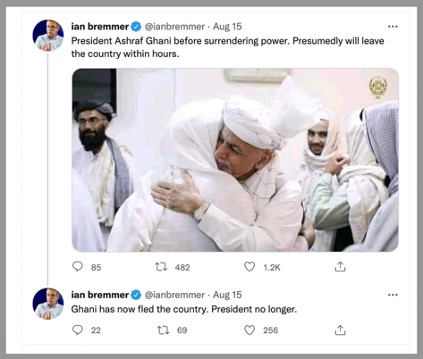
But we really felt the photo was suspicious, because there was no public information showing that Ghani had met with the Taliban before leaving the presidential palace. Later, Ghani emerged to take a Facebook video in which he said that he had left in a hurry and had been unable to take even his books with him, not to mention gold and valuables, that he had taken along only a change of clothes and so on. How was it possible, then, that he had been involved with these negotiations Taliban representatives, and even had embraced them? It wasn’t enough, however, to say that the photo was fake based on this sort of information, because it is actually just conjecture. Wasn’t it possible, say, that negotiations had happened secretly? So, the evidence in this case wasn’t so strong.
We spent so much time trying to track the photo’s origin down, and we couldn’t find it in the end. We did see that the photo circulating on the internet bore the insignia of the Presidential Palace of Afghanistan in the upper right-hand corner. So, it did seem that the photo might have been released by an Afghan government office. The media office of the Presidential Palace of Afghanistan has an account on Facebook, and in the past was very active posting photos, running into the tens of thousands. We spent three days combing through these but found nothing. You can now find posts from other fact checkers suggesting this photo actually dates back to 2020, or even 2019. But unfortunately, we dropped the topic in the end because there was little solid evidence about the image’s origin.
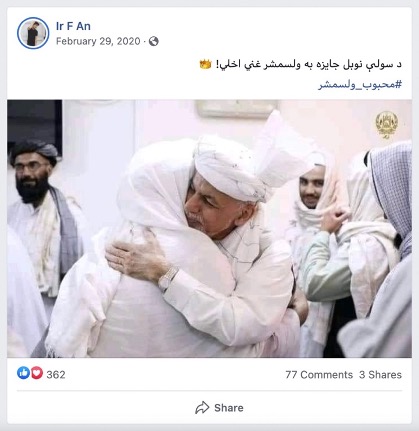
In cases like this, we don’t feel that the time and effort spent are in vain. Because in the process you gain a lot of experience.
Laying a Good Foundation
Fang Kecheng: Indeed, fact-checking can consume a lot of time and energy. And this naturally leads, I think, to another question. What thoughts do you have on the impact of your fact-checked information against the amount of energy and time you invest? Not just in China but in other countries, like the United States, content that is fact-checked often spreads much less than mis/disinformation itself. If this is the case, do you still feel satisfied with this work? Or do you feel frustrated by this dilemma?
Wei Xing: This is a good question, and one that I think really gets to the heart of the matter. Yes, false information is almost always disseminated more effectively than fact-checked information. I personally think this may be an unsolvable problem in the long run. This is just a reality. The difficulties and challenges we face in the process [of our work] are about not just quantity, but also a question of audience. Which is to say, it may be difficult or even impossible for us to reach those who consume mis/disinformation with our fact-checked content. Very often, we are in two parallel worlds.
Many of our fans are people who pay more attention to mis/disinformation, who pay attention to checking facts and the quality of the information they consume. Their actual consumption habits are already pretty good, you could say, and this is why they support us from a conceptual standpoint. But when it comes, for example, to my own family members or former classmates, while they may occasionally tune in to our stuff in the spirit of friendship, they’re not the main group of people consuming our content. Sometimes I’ll notice that in a certain chat group people are spreading something that is fake. We’ll do a fact-check and share it with them, and they’ll say, “Okay, I get it, thanks.” But then the next day you’ll see that something really similar, or even the same piece of information, is making the rounds again. So, this is a huge problem – how to break through the circle of transmission.
What’s more, you’ll find that the dissemination of some mis/disinformation is so widespread because it has certain of what you might call “technical” advantages. For example, the choices made in terms of title and language are particularly eye-catching. It may be delivered in short sentences, which can be emotionally evocative. For these reasons, information like this may spread very quickly. The dilemma for fact-checkers is that if you employ similar methods purely for the sake of communication – making the headlines more exciting, or including little jokes and being more playful – these can be effective in terms of transmission, but they are in conflict with the core of what fact checking is about. The main point of fact-checking is to let the facts speak for themselves. Of course, you can speak really clearly about something, and offer evidence. But then there is another problem. You may be cool and collected, sitting upright. But others are going to say: “We read this information to have a bit of fun, so why are you being so serious about everything?”
So, this is the predicament you find yourself in. Personally, I feel there isn’t a particularly good solution.
Fang Kecheng: So you’ll continue to do things the same way you have up to now, is that right?
Wei Xing: That’s right. On the one hand, it’s of course about spreading true information. On the other hand, it’s also about playing an important role in training. As I said earlier, many of our volunteers may still be college students. We hope to lay a solid foundation at the beginning, through rigorous training, or even a little old-fashioned training. This is a way of laying a good foundation. In the future, even if you are not engaged in fact-checking work or journalistic work, the ability to gather information and remain sceptical definitely be useful regardless of what you’re doing.
Fang Kecheng: Do you think internet platforms should play a more important role in promoting the dissemination of fact-checking?
Wei Xing: Definitely. Compared with their foreign counterparts, these domestic internet platforms, especially content platforms, actually face much less pressure from the government, legislators, the public, NGOs, and the media in dealing with false information. Since 2016, many large technology companies abroad such as Facebook, Google, YouTube and Twitter have been under increasing pressure in this regard. So either actively or passively, they’ll take certain actions – cooperating with third-party fact-checking agencies, or with the media, and so on. The question of effectiveness aside, at least they make these efforts.
In China, for reasons that are well known, these internet platforms prioritize dispelling rumours from government agencies. For other content that needs fact-checking, like a lot of the content we’ve addressed, they aren’t very proactive. The reasons for this are basically the ones we just talked about. First of all, such content is relatively safe, because it is about foreign countries. Secondly, it drives traffic, which is really important to the platforms, and encourages more people to continue visiting.
In China, for reasons that are well known, these internet platforms prioritize dispelling rumours from government agencies. For other content that needs fact-checking, like a lot of the content we’ve addressed, they aren’t very proactive.
I personally think Chinese domestic internet companies could do more in this area. Compared with the situation in foreign countries, the sources of information available to domestic users in China are more concentrated on just a few platforms. There are really very few people who access information through independent websites or media apps. Most people access content through WeChat groups, or WeChat Moments, or through [ByteDance’s] Toutiao. In theory these platforms should bear a greater responsibility. Unfortunately, though, they are not doing enough in this regard.
Fang Kecheng: You have cooperated with media, but have platforms not sought you out for cooperation?
Wei Xing: Only relatively shallow cooperation. For example, some platforms will invite us to be hosted there – which means basically to become a distribution channel [for our content].
Fang Kecheng: But they are generally less likely to actively recommend your content.
Wei Xing: Sometimes they will promote it. For example, when you’re addressing something that is a hot topic. But at many major internet companies in China, the content department is in a relatively weak position. Even at Tencent, which among all internet companies in China has done a relatively good job of fact checking, with its own branded fact-checking product, “fact.qq.com,” [fact checking] is mostly directed at the Tencent news app, and hasn’t yet been extended to the mighty WeChat.
So far, the only time we’ve had a relationship with WeChat, which couldn’t be characterized as cooperation, was when our content was selected by them, back in June this year. There was a public account at the time called “Xin Lingnan Observation” (新岭南观察) that specialized in disinformation about international affairs. The account posted an article saying that Italy’s Prime Minister had confessed that the Covid-19 epidemic had started earlier in Italy than in China. It said he had made these remarks during an interview with Italian national media. We quickly fact checked this, and the impact of our post was pretty great, because it had managed to address a trending topic.
Later, the Embassy of the Republic of Italy in China also issued a statement on its official Weibo account, which basically said that they had noticed this information circulating on social media and that no such thing had happened. Afterward our verification article was included as an example in this small WeChat program called “Rumour-Busting Assistant” (辟谣小助手).
Commercial Incentives for Falsehood
Fang Kecheng: Having fact-checked so many things now, I suppose you must be quite familiar with how creators of fake content generally work, right? What kind of people are they? What are their main patterns in creating disinformation?
Wei Xing: The sources of disinformation are actually quite diverse, but I personally think that most of these producers in China are out for commercial interests. The so-called “commercial account” (营销号) is a typical example. Their goal is to earn traffic that can turn into advertising revenue. Of course, there are some specific groups. During the US election, for example, there were some Trump supporters on Chinese-language social networks, and they translated and spread false information released by Trump supporters in the United States.
There are a lot of methods they use. Every time a hot topic crops up, for example, disinformation abounds, and of course this is about capitalizing on hot topics to get traffic. Also, whatever type of content can stir emotions, that is something they will use.
Doing video is actually quite expensive, and it requires relatively sophisticated technology, so generally is more a matter of “flower and tree removal” (移花接木型), basically taking something from the past and repositioning it in the present.
Another method is to exploit the language gap between the vast majority of Chinese and foreigners. Most people actually don’t understand English, let alone other languages. So you’ll find a lot of disinformation is accompanied by screenshots, and the screenshots are full of foreign language. This seems to add a certain degree of legitimacy to the information and it will be more readily accepted by ordinary people. The implication here is, “Look, this isn’t something I said, but rather it’s from foreign media, or from someone in a foreign country.” The assumption is that what foreigners say is more credible when it comes to foreign countries.
Fang Kecheng: China Fact Check deals mostly with verification of international news. And many people today believe we’re now in an era of de-globalization and anti-globalization. Owing to the pandemic and other reasons, countries in the world have become more and more divided, and the antagonism among the people of various countries is growing more severe. Given such an atmosphere, do you sometimes feel as you come to the work of fact checking international news that there are so many things you can potentially do, and that the burden is immense? Or do you sometimes just feel discouraged, like you’re swimming against the current and there’s no way to change the general trend? Do either of those state of minds fit with how you and your team feel?
Wei Xing: In fact, I think we’re mixed. On the one hand, on social networks, compared to a few years ago, let alone more than ten years ago, you will definitely see more extreme and lacerating comments. You’ll come across many remarks you could not have imagined years ago, but now they march out without any sense of shame. They are regarded as normal or taken for granted by many people. When you see these things, of course you feel really depressed.
But what comes after the depression? You can complain, of course. Or you can choose just not to look at it, putting it out of sight and out of mind. But if there’s something you can do about it, then do it. Surely, it’s better to do a little something than to do nothing. Doing a little fact-checking project like China Fact Check, we at least tell ourselves: We don’t need to be too ambitious; we just need to try to do something. This has been an important source of encouragement and motivation for us to continue this year.
If you have grand ambitions, then you’ll think that you have to have real results, that you need to reduce mis/disinformation by five percent, or something like that. If we did that, we would be setting impossible tasks, and before long we’d lose interest and confidence. Looking at it another way, if right now we can do a little something, then that’s something. And these are things that we are personally interested in. Isn’t that a better way? It’s this concept that has allowed us to get to where we are.
Right now, too, we have a pretty rigid requirement for ourselves: No matter what, we must have at least one new bit of fact-checked information every working day. Sometimes, we might have topics that aren’t great. But we insist on achieving output every day.
So, persistence is victory.
Fang Kecheng: That’s a very good point. I’ve done some projects myself with this sort of mindset. Thank you so much for you time, Mr. Wei.

Fang Kecheng

